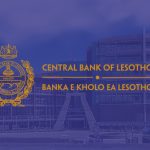
Speech by the Governor of the Central Bank of Lesotho, Dr. Emmanuel Maluke Letete
July 13, 2023
Monetary Policy Committee (MPC) Statement of the 02nd April, 2024
April 2, 2024On the 25th of July 2023, the Monetary Policy Committee (MPC) of the Central Bank of Lesotho held its 102nd meeting. The Committee deliberated on global, regional, and domestic economic developments, as well as the latest trends in financial markets.
The Committee noted that global economic prospects remained relatively unchanged since its last meeting. The global economy is expected to remain weak in 2023 amid heightened geo-economic fragmentation, tighter monetary policy stances, high debt levels and the recent financial sector challenges. In addition, the on-going Russia-Ukraine war continues to cast a dark cloud over prospects of a global economic recovery. Global economic growth is projected to be 2.8 per cent in 2023.
In the first quarter of 2023, economic activity in selected advanced and emerging market economies exhibited uneven outcomes. The US, China, India, and Japan saw improvements in economic activity, mainly driven by increased consumption and investment spending. However, the euro area, UK, and South Africa experienced slowdown. Growth in the euro area was weighed down by the energy challenges stemming from the shift away from Russia’s gas supply, while the UK’s growth was affected by the protracted series of labour strikes. In South Africa, growth slowed down because of declines in output in the mining, manufacturing and the utilities sectors. In addition, the South African economy was adversely affected by the power supply crisis and weak commodity export prices.
The labour market conditions were mixed in selected advanced and emerging market economies in June2023 compared to the end of the first quarter. There was improvement in the US and the UK labour markets. The unemployment rate remained unchanged for the euro area while it declined for China and Japan. Their labour markets continued to benefit from strong growth following the re-opening of their economies from the strict COVID-19 restrictions at the end of 2022 and beginning of 2023, respectively. The SA labour market continued to be adversely affected by the prolonged energy crisis, which led to loss of jobs in mining, trade and manufacturing sectors.
In the second quarter of 2023, inflation continued to moderate in most countries except in China, where the inflation rate remained unchanged and India, where it rose. In South Africa, inflation declined due to falling fuel and food prices. However, the forecasted adverse weather conditions, higher electricity prices and the weak rand remain an upside risk to inflation. Despite declining inflation rates, most central banks maintained tight monetary policy stances to lower inflation below target rates. In contrast, the Peoples Bank of China cut its policy rate to support economic recovery. Japan, India and South Africa kept their policy rates unchanged given the recent moderation in inflation.
Short-term yields rose in advanced economies driven by continued hikes in interest rates by respective central banks. Conversely, China’s yields declined as the People’s Bank of China cut interest rates to support growth. In South Africa, short-term yields fell due to heightened risk premium exacerbated by persistent energy crisis. Long-term yields in both advanced and emerging market economies fell, primarily influenced by a slowdown in inflation.
Domestic economic activity rebounded in May 2023 from a decline recorded in the preceding month. The stronger growth was mainly underpinned by robust demand and the improved performance of transport and construction subsectors. However, the manufacturing sector moderated growth in the review period. In the near-term, the domestic economy is expected to grow mainly due to construction activities related to LHWP Phase II project and positive spillover effects into the services sector. Nonetheless, poor performance of the manufacturing sector is expected to adversely affect the economy.
Domestic inflation fell to 5.6 per cent in June 2023 from 6.9 per cent in May 2023, mainly due to declining fuel and food prices. Despite the recent decline, domestic food prices remained elevated due to persistently high imported inflation emanating from the weaker rand, hence Loti.
Government budget balance deteriorated between April and May 2023, as government spending picked up in the second month of the fiscal year. During the same period, the stock of public debt increased to 60.0 per cent of GDP.
The level of CBL’s Net International Reserves (NIR) increased between May and July 2023 as a result of SACU transfers. The NIR level remained above the target floor of US$690.00 million set by the MPC in its meeting held in May 2023 and was adequate to support the loti-rand exchange rate peg. The NIR is expected to continue to improve in the third quarter of 2023 due to the recovery in SACU transfers.
In summary, global economic prospects for 2023 remained weak. The domestic economic activity rebounded in May 2023 after contracting in the preceding month and is projected to improve in the medium-term. Inflation moderated substantially but the risks are tilted to the upside due to weak Loti and prospects of drier weather conditions in the coming months.
Having considered the NIR developments and outlook, regional inflation and interest rates outlook, domestic economic conditions and the global economic outlook, the MPC decided to:
- Increase the NIR target floor from US$690 million to US$820 million. At this level, the NIR target will be sufficient to maintain a one-to-one exchange rate peg between Loti and the Rand.
- To leave the CBL rate unchanged at 7.75 per cent per annum.
The Committee will continue to closely assess the global economic developments and their impact on the domestic economy, especially the Net International Reserves (NIR) and respond accordingly.
E M Letete (Ph.D).
GOVERNOR
Contact Person:
Ephraim Moremoholo
+266 22232094
emoremoholo@centralbank.org.ls

